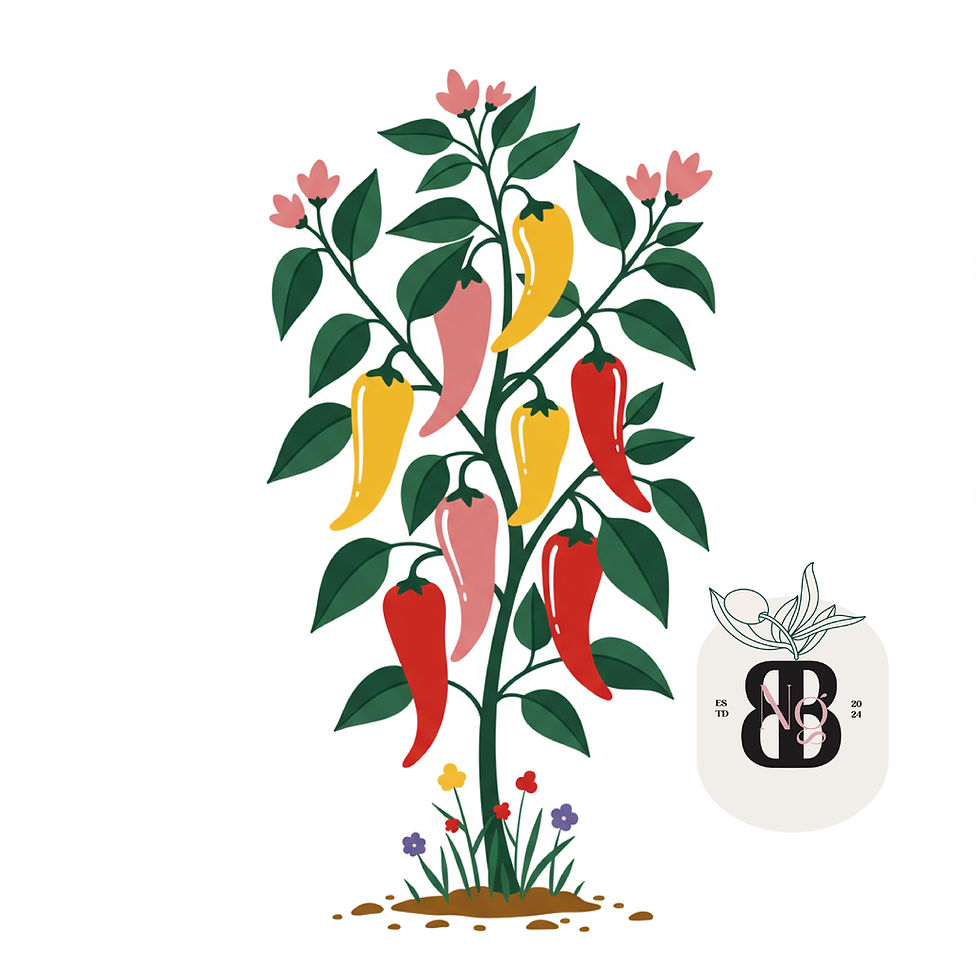How to Start a Fermenting Company: Turning Vinegar & Hot Sauce into a Flavor Empire
- Alice Choo-Shee-Nam

- Aug 22, 2025
- 3 min read
How to Start a Fermenting Company
Fermentation is having a serious moment. From kombucha taps at neighborhood cafés to small-batch kimchi on gourmet shelves, consumers are waking up to the magic of living foods. But one category still ripe with opportunity? Fermented vinegars and hot sauces. These bold, versatile condiments are finding their way into home kitchens, cocktail bars, and chef-driven menus. If you’ve ever dreamed of turning bubbling jars into a thriving business, now is the perfect time to start your own fermenting company.
Why Vinegar and Hot Sauce?

Fermented products hit that sweet spot between ancient tradition and modern foodie obsession. Vinegars crafted from fruits, grains, or botanicals aren’t just acidic—they’re layered, complex, and brimming with terroir. Imagine strawberry-rose vinegar drizzled over fresh greens or smoky apple cider vinegar blended into a craft cocktail.
Hot sauce, meanwhile, has become a cultural icon. Fermented chili sauces develop a tangy depth you can’t replicate with heat alone. The result? Bottles that carry stories of soil, spice, and time. Food lovers are collecting them like fine wines. Together, these products let you tap into both everyday pantry staples and indulgent foodie luxuries.
Step 1: Find Your Fermenting Identity
Every great company begins with a point of view. Ask yourself:
Do you want to highlight local fruits, herbs, or peppers from nearby farms?
Will your brand lean toward health and wellness (gut-friendly probiotics) or toward bold culinary adventures (chef-driven pairings)?
Is your tone rustic and farm-crafted, or sleek and modern?
Your fermenting identity becomes the foundation for your logo, your packaging, and your storytelling. People don’t just buy condiments—they buy into a lifestyle.

Step 2: Master the Craft
Fermentation is both art and science. To succeed, you’ll need:
Solid recipes: Start small, experiment with different sugars, peppers, and infusions. Document everything.
Safe practices: Learn proper fermentation times, pH levels, and bottling techniques. Food safety certifications will be essential once you scale.
Signature flavor lines: Build a core collection—perhaps a honey-ginger vinegar, a chili-garlic sauce, and a seasonal special that keeps customers excited.
Think of yourself as a flavor curator—the person who turns raw ingredients into liquid gold.
Step 3: Build Your Brand
Packaging and presentation can make or break a fermenting business. A clean, modern bottle with storytelling on the label feels like a must-try purchase. Consider:
Visual identity: Bold colors for hot sauces, elegant glass for vinegars.
Names that spark curiosity: “Smoky Ember Vinegar” or “Firekissed Chili Sauce.”
Education on the label: Many customers are new to fermented vinegars—teach them how to drizzle, splash, and savor.
Remember, branding is not just about looking good—it’s about feeling unforgettable.

Step 4: Market with Flavor
Your marketing strategy should be as vibrant as your products:
Farmers’ Markets: Perfect for connecting with curious eaters who love a taste test.
Collaborations: Partner with breweries, bakeries, or local restaurants to create limited-edition sauces and vinegars.
Social Media Storytelling: Post behind-the-scenes shots of bubbling crocks, recipes using your products, and customer shout outs.
Hot Sauce Challenges & Vinegar Tastings: Events create buzz and community.
Play into trends—people love spicy food content, TikTok recipe hacks, and bold visuals.
Step 5: Scale Smart
Once your small batches take off, think about growth:
Wholesale to specialty shops and gourmet grocers.
Subscription boxes that ship your monthly “flavor drop.”
Direct-to-consumer e-commerce, where you control your brand experience.
Restaurant partnerships, offering custom vinegars or house-label sauces.
Scaling doesn’t mean losing your artisanal touch—it means more people get to taste it.

Step 6: Stay Ahead of the Curve
Fermentation is timeless, but consumer tastes evolve fast. Keep an eye on:
The rising demand for sustainable packaging.
Global flavor inspirations—think Korean gochugaru, Caribbean scotch bonnets, or Japanese yuzu vinegars.
Health & wellness claims (without overpromising).
Innovation keeps your company fresh and future-proof.
Final Pour
Starting a fermenting company isn’t just about producing vinegar and hot sauce—it’s about bottling an experience. You’re selling more than flavor; you’re offering culture, creativity, and connection. With curiosity as your compass and consistency as your craft, you could turn a simple bubbling jar into the next beloved brand on kitchen shelves everywhere.
So grab your peppers, line up your jars, and start fermenting your future. Who knows? The next great hot sauce cult classic—or chef-loved vinegar—might just have your name on it.
Would you like me to also format this into a styled 2-page PDF with headings, pull-quotes, and maybe a sample product lineup illustration, so it feels like a magazine spread or business guide?

Comments